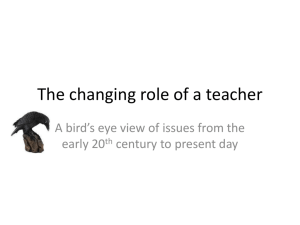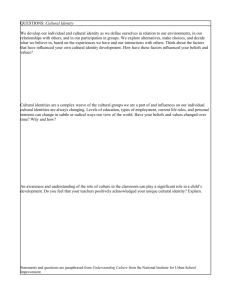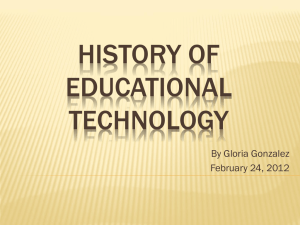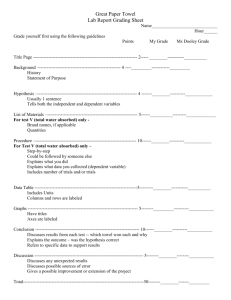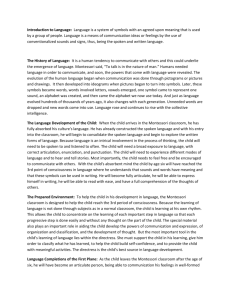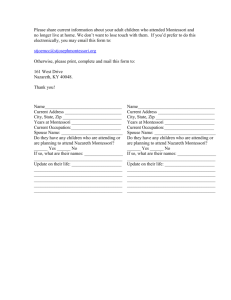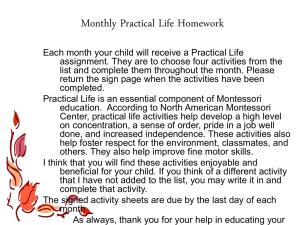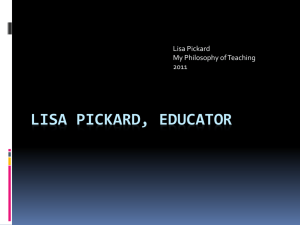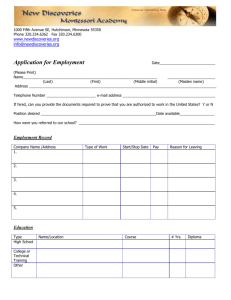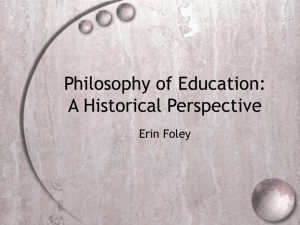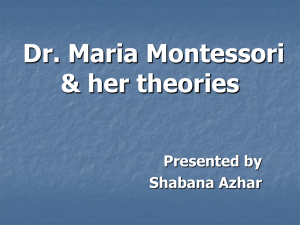Montessori and Dewey - Hunter Supreme
advertisement
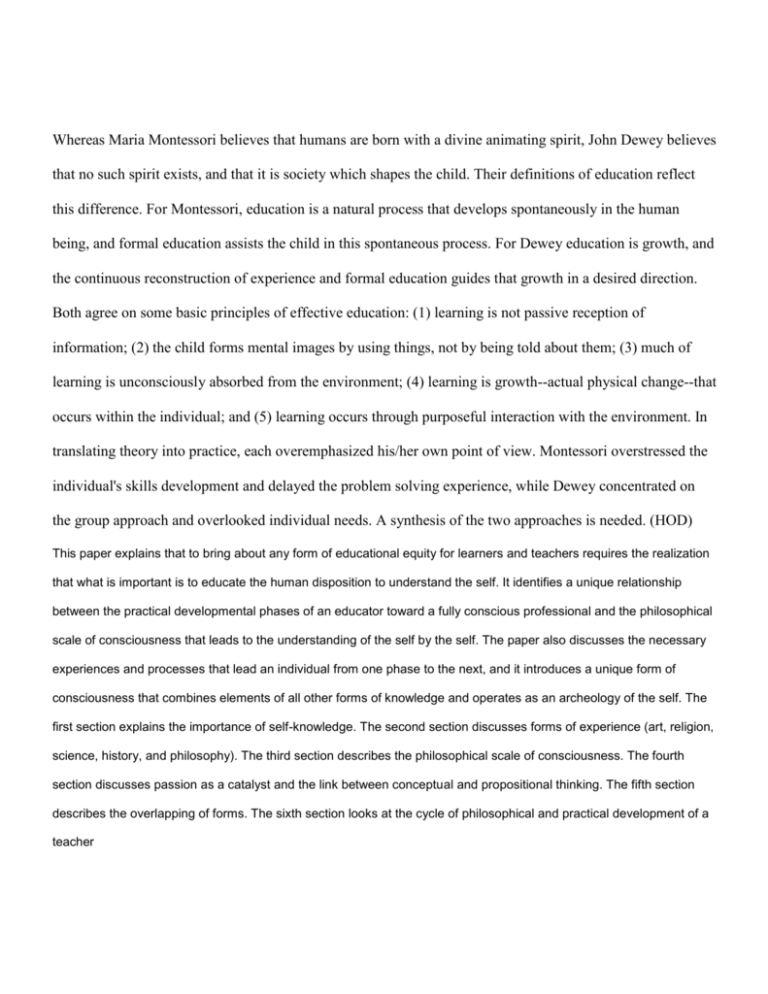
Whereas Maria Montessori believes that humans are born with a divine animating spirit, John Dewey believes that no such spirit exists, and that it is society which shapes the child. Their definitions of education reflect this difference. For Montessori, education is a natural process that develops spontaneously in the human being, and formal education assists the child in this spontaneous process. For Dewey education is growth, and the continuous reconstruction of experience and formal education guides that growth in a desired direction. Both agree on some basic principles of effective education: (1) learning is not passive reception of information; (2) the child forms mental images by using things, not by being told about them; (3) much of learning is unconsciously absorbed from the environment; (4) learning is growth--actual physical change--that occurs within the individual; and (5) learning occurs through purposeful interaction with the environment. In translating theory into practice, each overemphasized his/her own point of view. Montessori overstressed the individual's skills development and delayed the problem solving experience, while Dewey concentrated on the group approach and overlooked individual needs. A synthesis of the two approaches is needed. (HOD) This paper explains that to bring about any form of educational equity for learners and teachers requires the realization that what is important is to educate the human disposition to understand the self. It identifies a unique relationship between the practical developmental phases of an educator toward a fully conscious professional and the philosophical scale of consciousness that leads to the understanding of the self by the self. The paper also discusses the necessary experiences and processes that lead an individual from one phase to the next, and it introduces a unique form of consciousness that combines elements of all other forms of knowledge and operates as an archeology of the self. The first section explains the importance of self-knowledge. The second section discusses forms of experience (art, religion, science, history, and philosophy). The third section describes the philosophical scale of consciousness. The fourth section discusses passion as a catalyst and the link between conceptual and propositional thinking. The fifth section describes the overlapping of forms. The sixth section looks at the cycle of philosophical and practical development of a teacher
